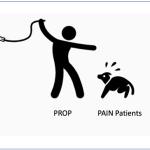Teenagers have no business using electronic cigarettes. Public health officials, scientists and even companies that manufacturer and sell e-cigarettes should do all they can to prevent teen vaping.
Policy & Ethics
Donuts, beer, college scholarships, cash, trucks, and even guns.
Should celebrities tell the world that they've been vaccinated against COVID-19?
Although it took four years, the American Medical Association's 202
Here is a breakdown of the concerns brought to the EPA’s internal integrity unit over the last decade. Some are purely internal concerns, like professional development, authorship acknowledgments, or intra-agency retaliation.
California-based law firm Baum Hedlund was founded by Church of Scientology lawyers and has had close ties to the cult for decades.
In May, a cyberattack on Colonial Pipeline threatened to shut down the company’s fuel distribution network – igniting fears of a global gasoline shortage.
Social media platforms shouldn't be trusted to censor scientific “misinformation.” As we've reported in recent months, such efforts by tech companies like Facebook are crippled by partisanship and double standards.
The suggestion that children should be vaccinated against SARS-COV-2 has triggered outrage and anxiety across the internet.












